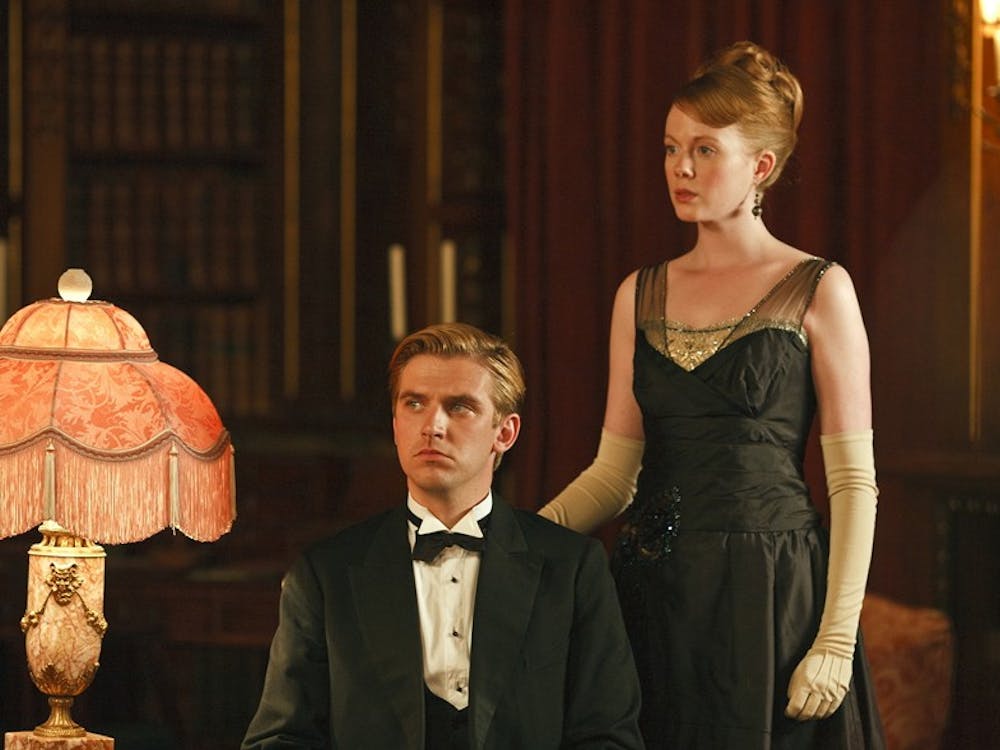The recent feature-length revival of hit series “Downton Abbey” checks all the boxes one would expect from a highly anticipated spin-off: the characters’ stories are picked back up at some time after the show’s finale, a new event or circumstance drives the plot and there is little deviation from the fixtures that made the show so popular. I wouldn’t exactly say that the film is predictable — if anything, it capitalizes upon what audiences know and love about the show while taking minimal risks to bring something moderately new to the table.
During a well-paced opening that reflects viewers’ anticipation of the revival, we are reintroduced to beloved characters and see that despite the small jump in time, nearly everything is exactly where the series finale left it. It is almost as if, after having tied the characters’ lives up in a relatively neat bow, series creator Julian Fellowes finally gave in to fans’ wishes for a revival while aiming to do very little to disturb the idyllic environment established in the finale. It is business as usual at Downton, immediately negating the possibility for any drastic upsets to the Crawley family life.
After seeing the film, I found myself a bit exasperated at the lack of progress in the story that the film makes. The King and Queen of England visit Downton Abbey for a one-night stay which sends the Crawleys and their staff into a very nervous and excited state for much of the film. Within this surface plot line, we see the same banter between the same characters over the same subjects — despite the moderate tension that arrives in the form of the King and Queen’s personal household staff. For the most part, SNL’s parody trailer says it all: If you’re looking to watch cleaning montage after cleaning montage sprinkled with glamor shots of the Abbey and the same family drama you watched for six years of your life, this is the film sequel for you.
When I got in the car after leaving the theater, I wondered why I saw the film in the first place. It certainly wasn’t a “bad movie” by any standards; I just couldn’t quite pin down what exactly I was expecting. It didn’t leave me more satisfied with the series’ ending because it was simply more of the same, but it also didn’t leave me wanting more. Why do we place such a high value on rebooted or recycled entertainment? A part of me thinks it must have to do with our culture of consumption — we always want more of what we like, clearly regardless of quality.
So many films and television shows have been rebooted, revived or remade in the last eight years or so, and their success as well as viewer-approval ratings have been drastically varied. Disney is using its promise of a millennial Lizzie McGuire as launch bait for its new streaming service Disney+, and other content creators like Netflix have been quick to jump on the bandwagon to varying feedback from fans. Don’t even get me started on the absolute mess they made of “Arrested Development.” Thankfully, not all showrunners have fallen for the guise that the increased revenue and exposure promised by a reboot or revival are worth sacrificing the original series: “Friends” creator Marta Kauffman has insisted time and again she won’t disturb the stories that were told on her show because they have already been told.
Specific shows are created with specific timelines, parts of life or experiences in mind, and catering to white girl Twitter can dismantle the integrity of a series. Not to mention that the premises of some series simply don’t work for 2019, as Steve Carell regularly explains to hard-headed fans of “The Office.” Fans can be so passionate about wanting to see new material but inherently only want more of the same beloved characters and scenarios, so what good does a base-level reboot do us? If you love “Friends,” why is rewatching your favorite episodes not enough? Do we really want to see a bunch of dysfunctional 55-year-olds living it up in suburban Connecticut? If only we cherished what fleeting episodes we have of the shows that we love rather than rage on the internet about how badly we need to know whether Jim and Pam are still married.
Get The Chronicle straight to your inbox
Signup for our weekly newsletter. Cancel at any time.

